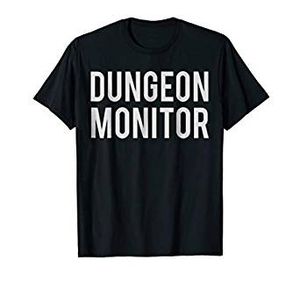Dungeon Monitors Association
http://www.dungeonmonitors.com website Updated: 2001 |
The DMA (Dungeon Monitors Association) was started in San Francisco, CA, and that is where most of its members and events happen, but we would love to see the DMA become a worldwide group. If you are interested in opening a DMA chapter near you and receiving support and materials from us, please contact us.
What It Means
One of the benefits of taking this class, and becoming part of the DMA, is that it is recognized by a majority of the locally organized SM/Leather/Fetish community groups as qualified DM training. Organizations such as SM Odyssey, Dragon's Keep, Byzantine Bazaar, LCLRC, AWOL and many others. In addition, many nationally known SM/Leather/Fetish organizations are also accepting the DMA's training as acceptable Dungeon Monitors training for their events. completion of this "Beginners Dungeon Monitors Training Seminar" you will have the opportunity to join the Dungeon Monitors Association E-list. This list is dedicated to allowing party hosts who are in need of qualified DM's to request your assistance. It is also dedicated to allowing DM's to communicate with each other regarding DM issues/questions/concerns and facilitate a sharing of our collective knowledge.
One of the benefits of taking this class, and becoming part of the DMA, is that it is recognized by a majority of the locally organized SM/Leather/Fetish community groups as qualified DM training. Organizations such as SM Odyssey, Dragon's Keep, Byzantine Bazaar, LCLRC, AWOL and many others. In addition, many nationally known SM/Leather/Fetish organizations are also accepting the DMA's training as acceptable Dungeon Monitors training for their events.
Requirements for Joining
To attend the Beginning Dungeon Monitor Training Course, we recommend you have the following experience, training and abilities:
- A minimum of one year of active involvement in the local SM/Leather/Fetish community.
- Must be over the age of 18
- Attended a minimum of 20 public/semi-public SM/Leather/Fetish Play parties (Dungeon Play parties) where DM's are on staff.
- A basic understanding of common play techniques
- A strong desire to continue education about different play styles beyond personal areas of interest.
- Be able to act in an emergency situation where physical activity and mental/emotional stability are essential.
Process
Satisfactorily complete a DMA-sponsored Beginners Dungeon Monitor Training class Document working as a DM at 15 separate parties (minimum one hour shift) of verified 'On Duty' experience as a Dungeon Monitor Trainee.
Document having attended 10 different BDSM skills classes, workshops, demonstrations and/or programs at least one hour in length. Qualifying classes may include those that have been taken and verified within one year prior to obtaining Dungeon Monitor trainee status.
Have a current first aid and CPR certification acceptable to the DMA.
Have a minimum of six months time as a Dungeon Monitor Trainee.
If all paperwork has been completed within one year of initial application and submitted to the Secretary, members will be sent permanent membership card.
Frequently Asked Questions
- Q: So when I finish the seminar I will be a trained Dungeon Monitor? Certified even?
- A: No. This seminar teaches you what you need to begin your journey as a Dungeon Monitor. At the completion of the Beginners Dungeon Monitors Seminar, you will be considered Dungeon Monitors in Training.
- Q: So being a Dungeon Monitor is a lot like being the Dungeon Police right? I get to tell people what to do and interrupt scenes right?
- A: No. At best, Dungeon Monitors are a lot like Lifeguards. We enforce the rules and make sure everyone has a great time. A better way to look at becoming a DM is that you are becoming a facilitator for the dungeon party. Your job is to make sure thateverything goes smoothly and that the party host/ess's guests are taken care of. That may mean doing something as simple as moving equipment around to facilitate safe playing, helping the top tape down an electric cord so bystanders won't trip on it, or even fetching a glass of water for a player who can not leave the dungeon floor. The last thing we wish to do is interrupt someone's play. The only time we interrupt a scene is when there is an inherent risk of danger to the players or guests and then we try to be as unobtrusive as possible.
- Q: But I do get to stop people if I don't like the way they play, right?
- A: No. You only intervene in a scene if there is risk to life and limb, the bottom calls a safeword, they are breaking party rules, or you see a situation that is an immediate safety danger to the bottom, top, or bystanders.
- Q: Then if I think blood play is unsafe, I can stop people from doing it?
- A: No. Safety issues are not predicated on what you think is safe, but on the standards of the community at large. This is why we stress that you need to learn about forms of play even if you would not do it yourself so that you can assess safety factors knowledgeably. Any time you are in doubt as to whether it is your own prejudices or a real case of safety causing you to want to curtail play, you should consult the party host or the head DM. (Unless the situation will cause imminent serious bodily harm.)
- Q: I get sick at the sight of blood and I don't think fireplay can be done safely at all. Can I still be a dungeon monitor?
- A: DMs are expected to be able to act in an emergency and an emergency might involve blood or fire--not just a play scene. If you don't think you will be able to deal with emergencies involving these things, you might want to rethink being a DM.
Chat rooms • What links here • Copyright info • Contact information • Category:Root
